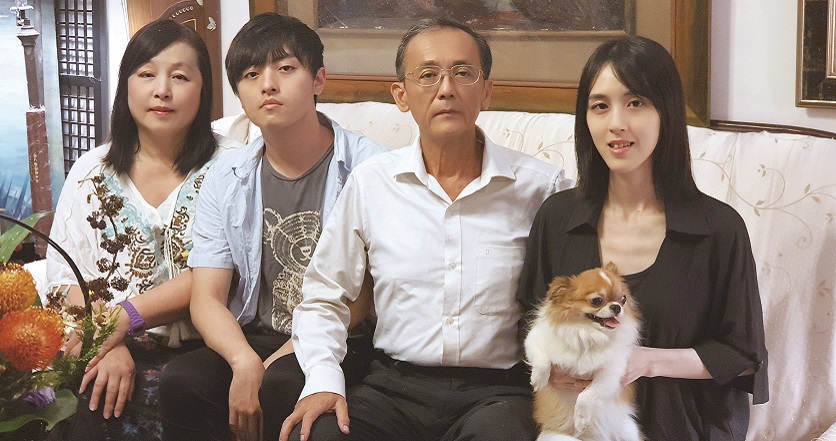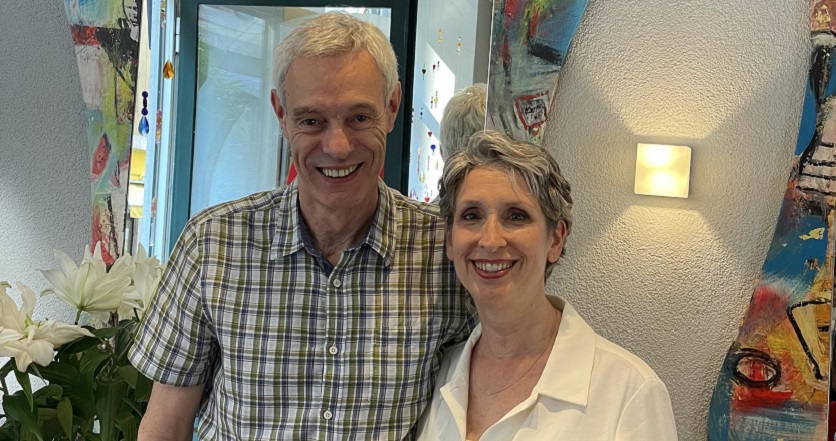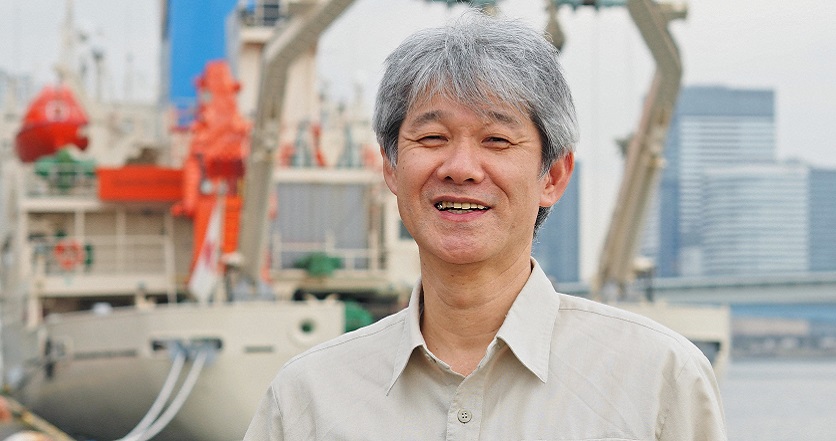The World Is Your Stage

When ballet dancer Jia Xi Lee first encountered Nichiren Buddhism, she was skeptical. She decided to test it out, embarking on a journey she never could have imagined.
In 2010, I came to New Zealand from Malaysia to study ballet at the New Zealand School of Dance (NZSD). I was insecure, depressed and was developing an eating disorder. I lost more than 10 kg in two months. Weighing only 38 kg, I walked around the school like a ghost. I didn’t know it then, but everyone was watching me disappear, both mentally and physically.
One day, I was sitting beside one of the school’s pianists who played for our classes. In his pile of papers, I glimpsed the word “Buddha.” It stood out.
I was skeptical at first, but I could not deny the happiness I felt when I chanted.
He lent me a book and other material introducing Nichiren Buddhism and stories of how it has transformed people’s lives. I was intrigued, and that very night, I chanted my first Nam-myoho-renge-kyo. For the first time in a long time, I felt like I was taking action for my life.
I was skeptical at first, but I could not deny the happiness I felt when I chanted. I received so much care and kindness from the Soka Gakkai members around me that I decided to join the Soka Gakkai. I decided I’d try this practice for five years, and if nothing changed, I’d quit.
I made a list of prayers that I thought were impossible and decided that if any of the prayers were not answered, I would just pack up and leave the Soka Gakkai.
My prayers included the following: to be someone who has a story to tell, to have a harmonious family, to have a great bunch of good friends, to develop a strong personality and stable emotions, and of course, to be free from depression and eating disorders.
Today, more than 10 years later, I’m still practicing! I was able to achieve all that I prayed for, and more.
Regaining Hope and Appreciation
After a while, through the practice, I started to feel a sense of hope and purpose. I started to believe that I could bring positive change to those around me. That’s when I started making conscious efforts to connect with my estranged parents, inspired by Nichiren’s writing titled “The Four Debts of Gratitude.” One of the four debts is that owed to one’s parents.
My hatred toward my father evaporated when I asked him, “What’s your dream?” and he responded, “I have a wife and kids, and the only dream I have is that whatever they want, I am able to give it to them.” I could not believe a man of his pride was driven by such a simple dream or that I was part of his dream.
Before I began my practice, my mother and I could not be in the same room without getting into an argument. One day, we had a truly heart-to-heart conversation where we talked for more than three hours without getting into any fights. She told me how proud she was of me, and we hugged!
As a very Chinese family, we rarely express our love or respect for each other. I never thought that this day would come so quickly and so dramatically after I began chanting about a harmonious family. Inspired by the change she saw in me, my mother became a member of Soka Gakkai Malaysia (SGM) in 2017.
The Encouragement I Needed
Upon graduating from the NZSD, I was the only female in my class to be employed by one of the few ballet companies in Southeast Asia. But my dream of becoming a ballerina quickly turned into a nightmare, as I was struggling to build a good work relationship with my employer to the point that my friends in the organization were concerned about my well-being.
I dreaded going to work every day. All I could do was to keep chanting and studying Buddhism.
I was inspired by President Daisaku Ikeda’s encouragement: “The world is your stage.”
As a dancer, I always thought that the stage was my world, but suddenly I realized, “No, the world is my stage!” I should be performing in the world not just on a black box stage. I realized that I could have courage to listen to what my heart desired.
As a dancer, I always thought that the stage was my world, but suddenly I realized, ‘No, the world is my stage!’
I was learning, slowly but surely, how to face all of life’s challenges with wisdom and courage, and I was learning compassion, not just for myself but also for others.
Since then, I have completed an audition tour for ballet companies in New York and Europe all by myself. I also completed my degree in psychology with first class honors.
Leaping into Action
When the Covid-19 pandemic started in 2020, I found myself with a lot of free time. I kept thinking to myself, “How can I use my ability to dance in order to share the hope-filled philosophy of Nichiren Buddhism and even one phrase or sentence of encouragement with others at this difficult time?”
When SGM held a social media campaign to engage youth to support the UN Treaty on the Prohibition of Nuclear Weapons (TPNW), I grabbed the opportunity and choreographed a two-minute dance solo based on SGI (Soka Gakkai International)’s anti-nuclear exhibition “Everything You Treasure.” I also gathered eight other artists to perform live with me on Facebook on July 7, 2020, with 700 people watching as a virtual audience as part of this campaign.
The event was reported on mainstream media. On September 30 of that year, Malaysia ratified the treaty amidst political and economic turmoil. I was overjoyed with this outcome and so proud that Malaysia was one of the first 50 countries to make nuclear weapons officially illegal.
Growing Happiness
Although I lost almost all my sources of income during the pandemic, I was extremely protected as I was offered a job with an above average salary and was able to work from home. I also had the good fortune of winning a prestigious performing arts award in Malaysia.
In 2021, out of nowhere, I was interviewed by the principal of the oldest ballet school in Singapore—a world-renowned ballet master and teacher—and was offered a full-time teaching position. As a dancer, I have taken action for the industry, but as a teacher, I can take action to transform the industry.
Looking back on myself as an insecure, depressed and invisible 19-year-old, I took the wisest possible five-year gamble to try out this practice. Without chanting, I would not have had the courage to live the life that is uniquely and assuredly mine.
My happiness has grown day by day for 10 years now, and as long as I keep striving in my Buddhist practice, I believe it will continue to do so.
Adapted from the March 2021 issue of Tai Aronui: Buddhism in Focus, SGI-New Zealand.







